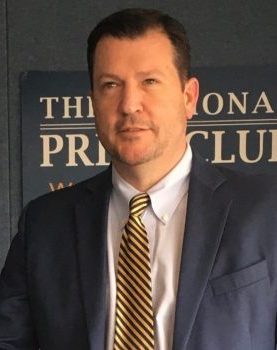*Trigger Warning: This story contains descriptions of a car crash and medical emergency that could be triggering. Viewer discretion is advised.
Emotion is at the heart of what we do at Early Light Media.
You can’t tell a meaningful story without tapping into the viewer’s emotion, by allowing them to put themselves in someone else’s shoes. But those emotional stories are not always positive. Often, our videos discuss painful and sensitive topics. When someone trusts us with an experience like this, we take it to heart. We work hard to tell those stories sensitively, conveying deep meaning and emotion to the viewer while respecting the subject’s dignity and privacy. It can be a difficult line to walk. It’s also the most meaningful work we do.
Layered, impactful, aspirational storytelling requires sometimes reaching down into dark and painful places. But the story is so much more inspirational once the viewers go to those places, and for the interview subject, telling their story can help their journey toward healing — if we do it right.
Producer Maribeth Livingston contracted Early Light Media to film and edit a video about a patient who survived the unimaginable, thanks to the R. Adams Cowley Shock Trauma Center at University of Maryland Medical Center. Before starting Livingston Productions, she worked in local TV news covering health stories, where she met ELM co-founders Darren Durlach, David Larson, and Jody Weldon.
“Asking a patient and their family to recount the most painful times of their lives requires humility, patience and compassion,” Livingston said. “By opening my heart to them, they almost always open their hearts to me and the camera.”
A highway construction worker, Amilcar Mendez was going through a normal day of work when he was struck by a driver. His was one of the most severe medical cases the doctors at Shock Trauma had ever seen.
Against all odds, Mendez survived, with the help of hundreds of doctors, nurses, and emergency responders who helped medevac Mendez from the highway and undergo multiple surgeries. Both of his legs were amputated, and he suffered severe injuries to his internal organs. He is now home again, learning to walk with prosthetics.
“I started thinking about my family,” Mendez said, “and I started thinking there is a reason why God gave me a second chance.”
In this video, Early Light Media told the story of Mendez’s perseverance, and the tireless work by Shock Trauma to save his life. For this dedicated medical team, saving lives is a regular part of their job. But Mendez’s case was especially severe. His journey toward recovery was difficult and emotional for him, his family, and the hospital staff.
We were honored that Livingston trusted us to be her partners in this, and took that responsibility seriously. We collaborated closely with her to ensure that we told the story in a sensitive way, with deep respect for Mendez and what he endured, as well as the hospital staff.
Empathy is not just a buzzword for us; it’s a guiding principle in our work. Throughout the process of filming and storytelling, we continually put ourselves in our subject’s shoes, striving to understand their perspective, emotions, and vulnerabilities. This empathetic approach informs every aspect of our production, from the questions we ask during interviews to the visual and narrative choices we make in the final edit. By centering empathy in our storytelling process, we not only honor the humanity of our subjects but also create a more authentic and impactful viewing experience for our audience.
Our biggest advice for anyone covering a sensitive topic on film: Use empathy. Throughout the process, put yourself in your subject’s shoes. Avoid asking questions that could be triggering or invasive, always get permission before turning the camera on, and allow your subject to play a more active role in filming. Ask them if there’s anything they don’t want included on camera, and let them know they can always pause the interview if they need a break, or feel uncomfortable.
“Livingston Productions has been telling the Shock Trauma hero stories for almost 20 years, and when I joined forces with ELM on this project in 2015, it brought the stories to a whole new level,” Livingston said. “Telling the stories of the heroes that save lives is the most rewarding project I do.”
We agree. Our team was honored to tell Mendez’s incredible story of recovery.
Collaboration is key in telling sensitive stories effectively. By partnering with Livingston Productions and the dedicated medical team at Shock Trauma, we were able to combine our collective expertise and insights to craft a compelling and respectful narrative. This collaborative approach not only ensures that all stakeholders are heard and represented but also fosters a sense of shared ownership and responsibility for the story being told. Together, we created a film that not only honors Mendez’s journey but also celebrates the resilience and compassion of the human spirit.
Mendez said words can’t describe his gratitude toward the team at Shock Trauma, and added that he feels “great,” as he recovers and continues physical therapy. The doctors who treated him were inspired by his perseverance and positive attitude, even during a severe, life-altering experience.
To them, Mendez said: “Thank you, thank you, thank you.”













